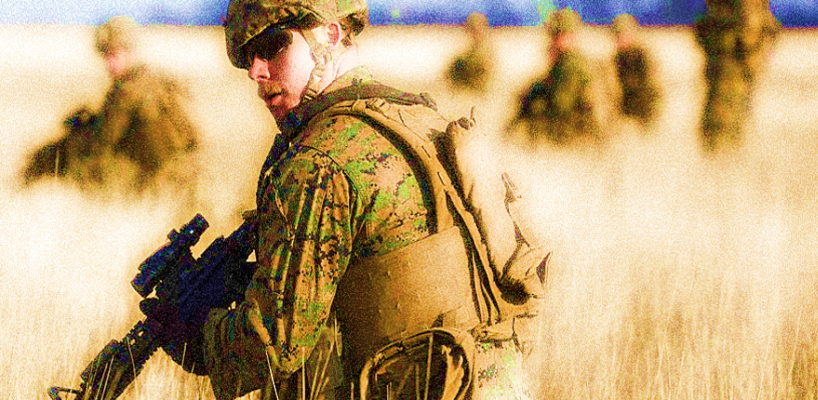When it comes to transitioning, the military provides service members with a week’s worth of courses that focus on topics like resume writing, job interviews, education benefits and veterans services. On the surface, it may seem like those courses are enough to set you up for success. But after speaking with some prior service members and doing some research, I’ve found that while the program provides a good foundation, you’ll need to do some extra work if you want to have a successful transition to the civilian workforce. The six areas highlighted below are key to trading in your military uniform for a civilian one.
1. Learn Soft Skills
In a 2015 review of the military’s Transition Assistance Program, the American Legion found that service members are leaving the military with a shortage of soft skills. Things like personal qualities, habits, social graces and attitudes that most civilian employees learn as they’re coming up in the workplace simply don’t exist for service members. For example, throwing around a few swear words to express your displeasure may work at the motor pool, but is unlikely to go over well in a civilian work environment. To soften your edges, spend some time with someone currently in the civilian sector. Ask questions about office etiquette, see if you could job shadow them for the day and consider meeting some of their co-workers for coffee. Most people are happy to answer questions and it will give you a better idea of what’s expected in a civilian workplace. Spoiler alert: swear words, dirty jokes and rude gestures are all frowned upon.
2. Build a Social Media Presence
The chances of hearing about social media during your transition are slim, but its importance when it comes to job hunting is high. A 2015 Jobvite survey showed that 92 percent of recruiters used social media sites to find potential job candidates. As a job seeker you should see that number and think, how can I get in on that? First, clean house by taking care of your existing social media sites. Update your profile photos so they look professional (get your photo reviewed here) and scrub your pages so they look like they belong to a serious, work-minded adult. No tweets about late night parties, discriminatory remarks or selfies (that same Jobvite survey said 25 percent of recruiters think selfies make candidates look “bad”). Finally, if you don’t have a profile on the Cleared Network, get one. You can build a professional network online that’s exclusively for professionals with active federal security clearance – which means you won’t be competing with every other candidate on the planet.
3. Get More Resume Help
The transition assistance programs teach basic resume writing, but some prior service members say it’s not enough. Your resume should be concise, loaded with key words and translated so that civilian recruiters understand your military experience – very difficult to achieve in a short block of instruction. If you’re struggling with parts of your resume, reach out to someone in human resources for some extra one-on-one help. And once you’re satisfied with the content, get your resume reviewed for misspelled words and grammatical errors. One resource you may have overlooked is the English department of your local university. Whatever you do, find another set of qualified eyes to review your resume. And no, spell check doesn’t count.
4. Practice Your Interview Techniques
You may be surprised to learn that some people view service members as “too rigid and formal” or lacking in empathy and understanding. Or perhaps your personality really has been battle-hardened and you’re lacking those important soft skills. Either way, you have the extra burden of fighting those perceptions (or reality) and that means you need to practice twice as much as the next candidate. Grab a friend, a spouse, or if you’re lucky, someone with hiring experience and get to work. Practice sounding conversational and learn how to scatter key words naturally throughout your answers. Also, practice describing your military experience in a way that shows the hiring manager that your skills translate to their civilian world. Be proud of your service, but also realize that you have to phrase it so others understand and appreciate your value.
5. Consider a Military Placement Firm
It’s unlikely you’ll hear about military placement firms during your transition courses, but some people do find employment using them. The concept is that a military placement firm like Orion or Bradley-Morris, attempts to match a transitioning service member with a company looking to fill a specialized position. The cost falls on the shoulders of the acquiring company and the service member finds gainful employment. There are no guarantees, but this may be an option for you depending on your expertise.
6. Find Your Drive
This isn’t necessarily something that can be taught, but it is something transitioning service members should keep in mind. Once you leave the military it’s easy to go the lazy route. There’s no one to tell you where to go, what job to do, how often to exercise or to take extra college classes. If you aren’t mentally prepared to drive yourself to greatness, you may fall off track for a bit. Plan to take some time off and enjoy life without your uniform, but don’t lose sight of what you want to achieve. Make a list of goals, attach them to a timeline and get to work.
In the end, it can take some time to adjust to life outside the military and the added stress of looking for employment can make things a lot less enjoyable. Hopefully, these six tips will help make your transition that much smoother.



